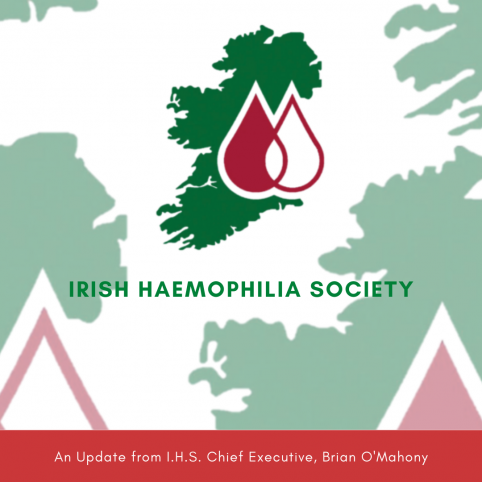Today, April 17th is World Haemophilia Day (WHD). In 2018 and 2019 on this date, the Society celebrated by organising events, art installations and by arranging for many of Dublin’s iconic buildings to be lit up in red. This year, sadly we cannot do that. It is a surreal WHD for all of us as we cope with an unprecedented pandemic in our time. However, let us not be too downcast. We will persevere and we will emerge from this crisis together.

We marked the day with a Zoom meeting this afternoon on Covid-19 and the implications for Haemophilia. Perhaps not the most uplifting of topics but information is vital at this time and we want to ensure that members are up to date on the implications of the current pandemic for the organisation of haemophilia services. This is the second in a series of Zoom meetings which we are organising for members. Further meetings have been organised for;
Wednesday, April 22nd @ 11am. Haemophilia Care in Europe (Brian O\’Mahony, I.H.S. CEO)
Wednesday, April 29th @ 11am: Hemlibra Information for Parents (Dr. Beatrice Nolan, Paediatric Consultant Haematologist, CHI at Crumlin)
Wednesday, May 6th @ 11am: Topic TBC. (Dr. Niamh O’Connell, National Director & Consultant Haematologist, NCC)
Covid-19 Update
People with haemophilia have no greater susceptibility to Covid-19 infection than the general population. If a person with haemophilia is infected with Covid-19, there may be aspects of the treatment for, and symptoms of, Covid-19 that will have an influence on or be influenced by your haemophilia. Some laboratory assays will be affected, especially if the person is being treated with Hemlibra. This is not new knowledge. The teams at the haemophilia comprehensive care centres and at Galway University hospital will be aware of this but other hospitals or doctors may not.
If a person with haemophilia is infected with Covid-19 or tested for Covid-19, please inform your haemophilia treatment centre. This is very important especially if you are admitted to a hospital which is not a haemophilia treatment centre.
As Ireland copes with the pandemic, we are all starting to realise that a return to what we previously knew as normality may be delayed until such time as there is a vaccine or effective anti-viral treatments for Covid-19 or both. Work is progressing on a vaccine and most commentators expect this to take another 12 to 18 months. There has been an explosion in Covid-19 research focusing on many different classes of potential drugs and also convalescent plasma which could be used to confer passive immunity. The graphic below outlines some 620 clinical trials which are ongoing in more than 50 countries using more than 90 drug classes.
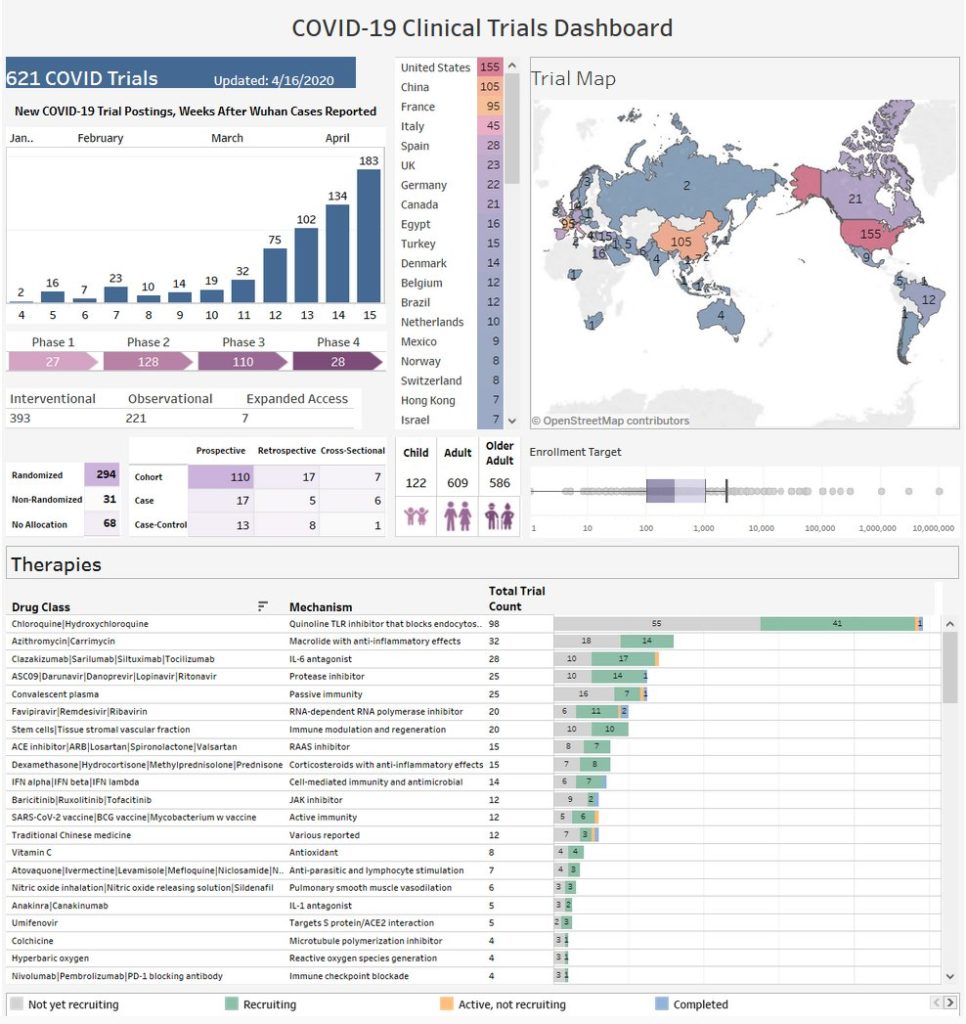
Ireland is not on the list, but I am aware that research is also being undertaken at the clinical trial facility in St. James\’s Hospital.
Dental Emergencies
Dental procedures produce a lot of aerosols which can spread the Covid-19 virus readily in a room. For this reason, dental procedures which can safely be carried out at this time are very limited and include some root canal work to stop pain, drainage of an abcess, dental extraction or dealing with trauma.
The Haemophilia dental teams are providing telephone advice via telephone and video in the first instance and can coordinate your care locally to limit your need to travel.
Prior to any dental procedures in a person with severe haemophilia, you should ensure that you have contacted your haemophilia care team. You should NEVER go ahead for dental extraction or other invasive procedures without contacting the team even if you have a mild bleeding disorder it needs to be planned.
Dr Alison Dougall and Dr. Kirsten Fitzgerald have produced a specific infographic outlining the limited procedures which can be undertaken and the relevant pathways. This is designed to be used by you and shared with your dentist.
Sample Letter & Infographics:
Here is a set of two resources to aid the self management of a dental appointment during COVID-19 Pandemic
We recognise that most dental care is limited to emergency procedures only at this time to address tooth ache or trauma.
We understand that you may be seeing a dentist who you don’t know well.
It is important that you inform the dentist that you have a bleeding disorder and so the resources have been designed to facilitate this process.
This pack includes a general letter that you can email the dentist so that they know that you have a bleeding disorder and gives them some outline information including the contact details of your team.
It also includes a algorithm that they can use to ensure that they provide safe care in partnership with you and your coagulation team. Both can be emailed to your dentist when you initially make contact with them via your telephone or video consultation.
Sample Letter (you can download the PDF here)
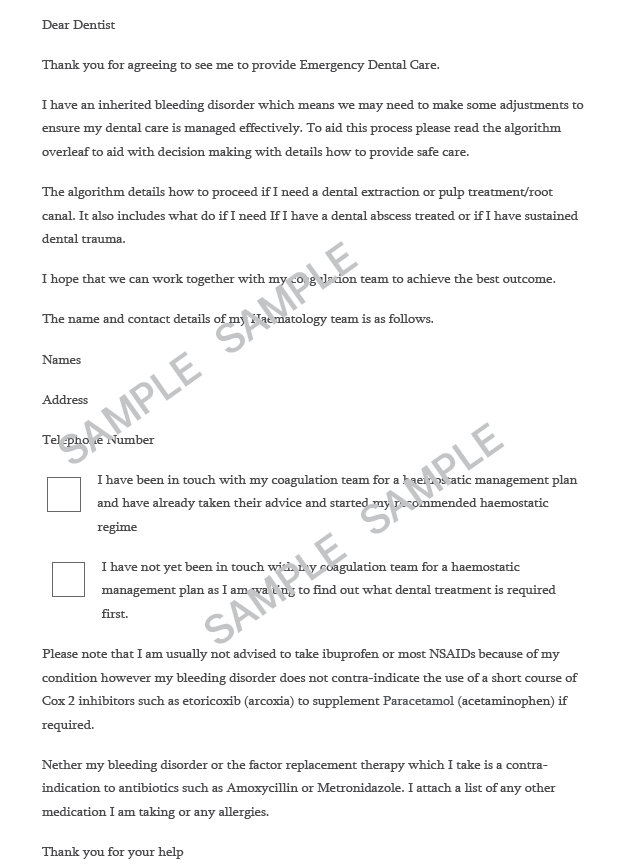
Infographics: (You can download here).
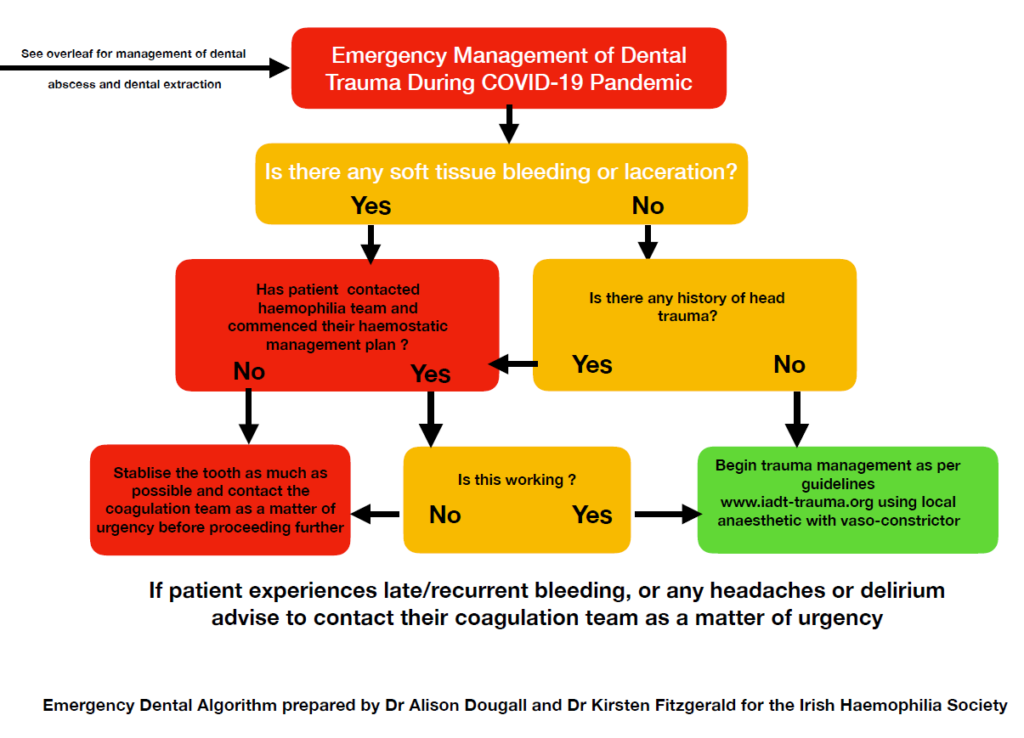
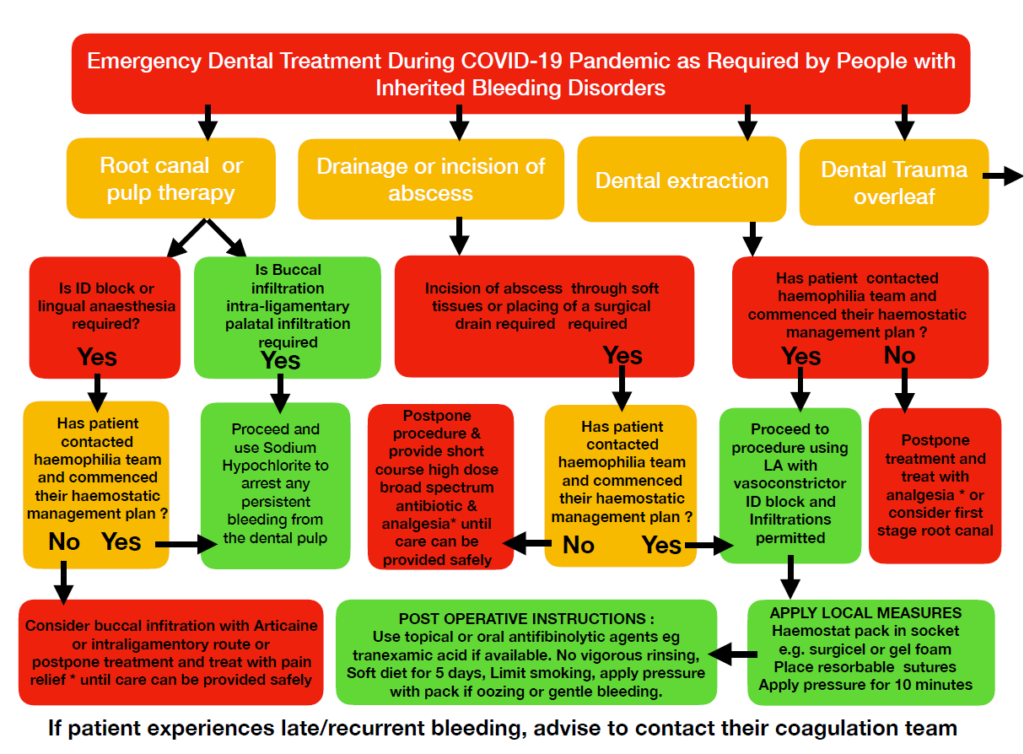
Brian O’Mahony
Chief Executive
